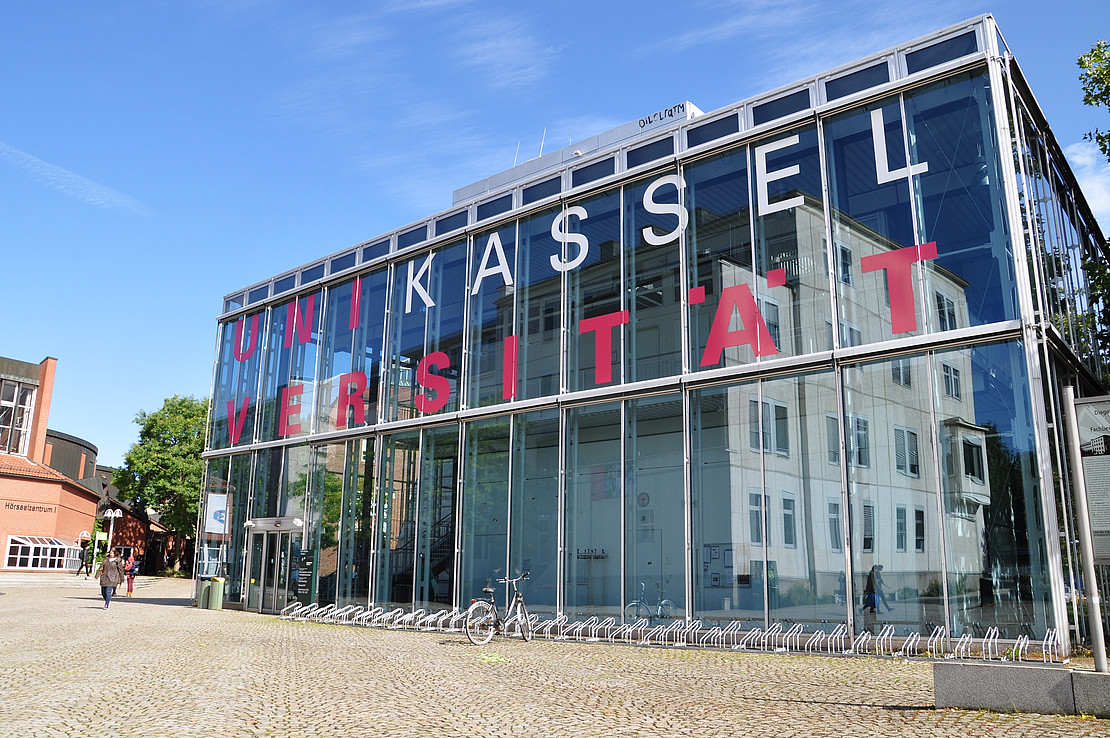This page contains automatically translated content.
Study PISUM: Pedagogical Intimacy without Boundary Violation

The research project "Pedagogical Intimacy - Study of Patterns of the Design of Pedagogical Relationships in Different Fields of Action (PISUM)" has investigated the design of and ways of dealing with intimacy in selected fields of pedagogical action and in leisure activities for children and adolescents - based on the assumption that intimacy, understood as the design of intersubjective closeness, is a genuine component of pedagogical and social relationships in schools, social work and also in non-genuine fields of action of work with children and adolescents.
The cooperative project of the Frankfurt University of Applied Sciences (Frankfurt UAS) and the University of Kassel, led by Prof. Dr. Michael Behnisch (Frankfurt UAS) and Prof. Dr. Alexandra Retkowski and Prof. Dr. Werner Thole (University of Kassel), was funded by the German Federal Ministry of Education and Research (BMBF) in the funding priority "Research on Sexualized Violence against Children and Adolescents in Pedagogical Contexts."
"In PISUM, intimacy is understood as the shaping of closeness," says Prof. Dr. Michael Behnisch, Professor of Methods and Concepts of Social Work at the Department of Social Work and Health at Frankfurt UAS and one of the project leaders, explaining the research approach. "Intimacy is an important component of pedagogical relationships with children and adolescents. The study explored forms of action and conditions of 'good closeness' in order to use this knowledge to help prevent boundary violations."
The research project assumed that pedagogical closeness relationships and the establishment of intimacy do not bear a greater risk for sexualized boundary violations - on the contrary: the design of 'good closeness' enables trust, disclosure processes and de-tabooing in relation to sexuality and vulnerability. "The experience of intimacy in social and pedagogical spaces supports and promotes the development of children's subjectivity, represents a protective factor against sexualized violence, and only creates the conditions that, among other things, also make it possible to reveal forms of sexualized violence," says Behnisch.
Under his leadership, a sub-project investigated the field of action of home education. The research team included, in particular, the project's research assistant Dorothee Schäfer (MA, Social Work) and student assistants. The team participated in everyday pedagogical life in six residential youth care facilities for a period of time and, in addition to these ethnographic observations, conducted 21 interviews with professionals, children and adolescents.
How is closeness in residential groups of home education established between the participants, which practices and dimensions generate closeness? Under what conditions do good, protective and supportive closeness relationships develop? What forms of pedagogical intimacy exist that can be clearly distinguished from forms of sexualization?
The aim was to work out how pedagogical relationships - which are always characterized by closeness and intimacy in pedagogical fields of action in home education as a 'pedagogical place of life' - are empirically presented. The second goal was to systematize patterns of pedagogical closeness and intimacy in order to systematize patterns of 'good closeness' and pedagogical intimacy. With the help of these systematized patterns, premises and norms could be defined in order to make risk and protective factors regarding sexualized violence against children and adolescents in pedagogical relationships not only describable, but also to reduce the risk of sexualized violence in youth welfare institutions.
The research material evaluated shows that good closeness or intimacy in residential education initially comprises two structural features: Intimacy is - first - always to be understood only as a 'hybrid occurrence' within a residential care group, in which private, intimate moments of everyday life exist parallel to the institutional structures of public education.
Intimacy - secondly - always encompasses different dimensions such as body, language, things, times, gender, and spaces that interact, often encompassing a symbolic-nonverbal content.
Furthermore, participation, transparency, generalizability and subject orientation represent central premises of a successful handling of intimacy in home education. These premises are flanked by norms of action that are the responsibility of pedagogical action: The design of pedagogical closeness must reflect professional roles and power structures in pedagogical relationships, is task- and education-oriented, and is framed by institutional responsibility.
Finally, the interplay of these premises and norms can contribute - thus to the fourth finding of the research findings - to reducing the risk of sexualized assault in home education.
In terms of scientific utility, the research findings can provide important insights for related scientific discourses on, for example, pedagogical relationships in youth welfare or for disclosure research, which deals with the disclosure of sexualized violence.
In terms of professional policy, the research findings have already found their way into the "Future Forum on Home Education," which is funded by the German Federal Ministry for Family Affairs, Senior Citizens, Women and Youth (BMFSFJ) and organized by the professional association IGfH (International Society for Educational Assistance). "The findings of the PISUM project have thus contributed to the professional further development of the field of action," Behnisch and Schäfer sum up.
This is also true with regard to the various interdisciplinary child protection events of the Frankfurt UAS in cooperation with the Goethe University Frankfurt and the University Hospital Frankfurt (child protection outpatient clinic): Here, too, the research results find their way in. In the field of education, the research analysis contributes - for example through seminar events - to sensitizing and informing students about the possibilities and conditions for shaping relationships of closeness in home education, which are suitable for reducing the danger of sexualized violence.
The book "Professionelle Nähe in der Heimerziehung" (Professional Closeness in Home Education), which will be published in December 2021, is aimed directly at professionals in home education in a practice-oriented manner and presents the research results of the PISUM project in a clear form.